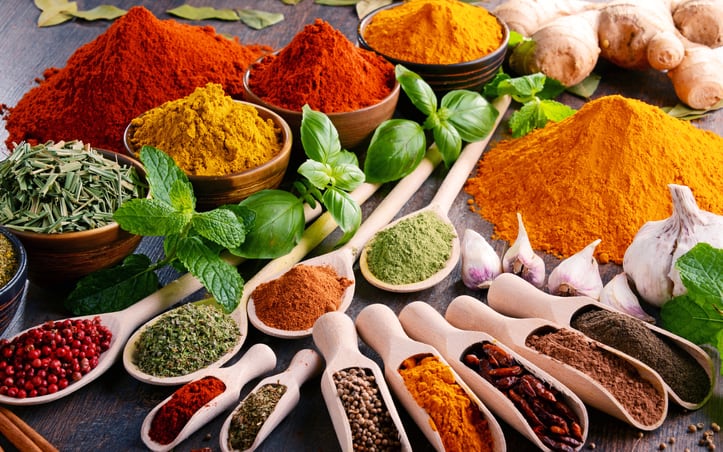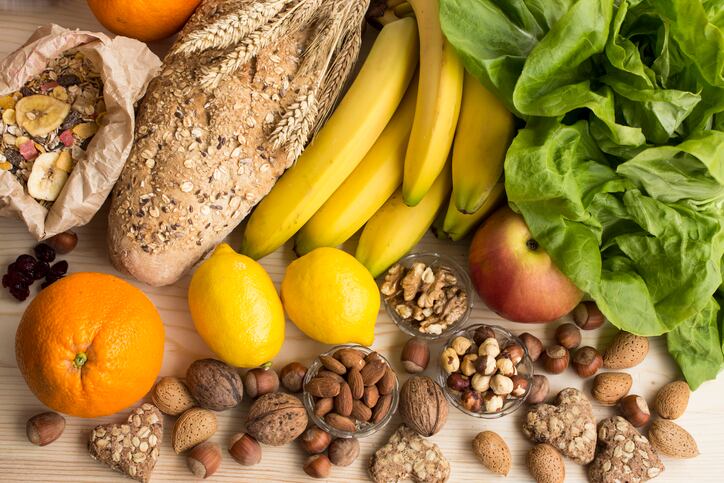The increase in the beneficial bacteria Bifidobacterium was higher in participants with a low baseline of the bacteria.
Similarly, the reduction in the pathogen Bacteroides was greater in participants who had a high baseline of the pathogen.
Writing in Scientific Reports, researchers from Singapore also said that the above benefits were particularly significant in individuals who do not regularly consume spices.
Fifteen healthy Chinese males in their 20s were recruited into the study.
They were required to consume a curry meal consisting a mixture of seven polyphenol-rich dried spice powders at six and 12 grams as well as a no spice control material in three sessions.
The spice mix consisted of turmeric, cumin, coriander, amla (Indian gooseberry), cinnamon, clove, and cayenne pepper mixed in the ratios of 8:4:4:4:2:1:1 respectively.
Analysis of the participants' gut microbiome was conducted based on their stool samples collected before they begin the study and the day after the study.
In between the three sessions, each participant also underwent at least a 14-day washout period and resumed their habitual diet. This was done to avoid any ‘carry-over’ effect from one intervention session to the next.
Change in Bifidobacterium and Bacteroides
The study found that Bifidobacterium had increased slightly or remained the same level when the participants took the mixed spices at both six and 12 grams, while zero spices intake had led to a reduction in Bifidobacterium.
In the same vein, the number of Bacteroides had slightly decreased or remained the same in participants who consumed the spices but increased when participants did not consume the spices. These changes were also dose dependent.
The findings showed that “a single meal containing mixed spices can modify or restore gut microflora within a period of 24 to 48 hours,” the researchers said.
“The present study is one of the few studies in humans investigating the influence of polyphenol-rich mixed spices, contained within curry meals, in two separate doses on acute changes in gut microflora.
“The rapid time frame of this change in gut microbiome as a result of a single bout of curry, at 2 separate doses, is not surprising given that previous studies have also shown alterations in gut microflora within a 24-h time scale.”
However, the researchers also highlighted that the mixed spices did not alter the alpha diversity of the participants’ gut microbiome.
This could be due to the short duration of the intervention and also the gut microbiome’s ability to adapt to short-term changes in the diet.
Thus, it remains to be seen whether similar changes reported in this study would occur following longer-term consumption of polyphenol-rich spices and whether such changes are stable over time.
Cause and effect
At the same time, the researchers suggested that there was a cause-and-effect association seen between the intake of polyphenol-rich mixed spices and the reduction in Bacteroides, but further studies would be required to confirm the association.
Citing previous in vivo studies in rats, the researchers said that there was a decrease in Bacteroides population after the rats were fed with polyphenol-rich cocoa.
Another study showed that the in vitro incubation of dietary polyphenolic components such as chlorogenic acid, caffeic acid, and rutin had reduced the bacteroides population under anaerobic conditions.
Source: Scientific Reports
A single serving of mixed spices alters gut microflora composition: a dose–response randomised trial
DOI: 10.1038/s41598-021-90453-7
Authors: Wei Wei The Khine and et al





